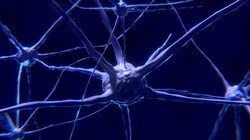
The peripheral nervous system is highly susceptible to injuries that can cause pain and diminish an individual’s ability to perform even basic tasks. Peripheral nerve injuries can be permanent and have a significant impact on a victim’s earning capacity and quality of life.
Causes of Peripheral Nerve Injuries
Approximately 20 million individuals in the United States live with some form of damage to the peripheral nervous system. These injuries can be caused by blunt force trauma during an automobile accident, repetitive stress of the nerve while performing job-related functions, or even by chemical exposures.
Damage can also occur as a result of improper treatment of metabolic or endocrine disorders, autoimmune diseases, cancer, and adverse events following medication errors. Personal injury lawyers in Chicago can help patients pursue damages for many of the causes of peripheral nerve injuries.
Differing Degrees of Injury
The peripheral nervous system can suffer injuries ranging from 1st to 5th degree. There are greater than 100 types of peripheral nerve damage that can occur. In most cases, more than one nerve is injured which can complicate treatment and have a significant impact on patient outcomes. The degrees of peripheral nerve injury damage are characterized by the following symptoms and outcomes.
First-Degree – Caused by a temporary interruption without damage to the axonemal structure, these injuries do not permanently damage the nerve. These injuries are most likely to heal with patient’s making a full recovery within two to three weeks from onset.
Second-Degree – These injuries damage the nerve fiber, but leave the myelin sheath covering the nerve intact. Second-degree injuries cause motor deficiencies and sensory loss, and they may, or may not fully heal.
Third-Degree – These injuries involve damage to the neural axons as well as the myelin sheath covering the nerve. These injuries may heal following surgical assistance but patients are often left with some degree of loss of sensation and motor function.
Fourth-Degree – In these injuries, the nerve itself is severely damaged and only the epineurium remains intact. These injuries require surgical repair. The prognosis for recovery following a fourth-degree peripheral nerve injury is highly dependent on the skills of the surgical team and the health of the patient at the time of the injury.
Fifth-Degree – This involves transection of the entire nerve. It causes a complete loss of sensation and motor function and even with surgical treatment, most patients do not have a significantly positive outlook for recovery.

